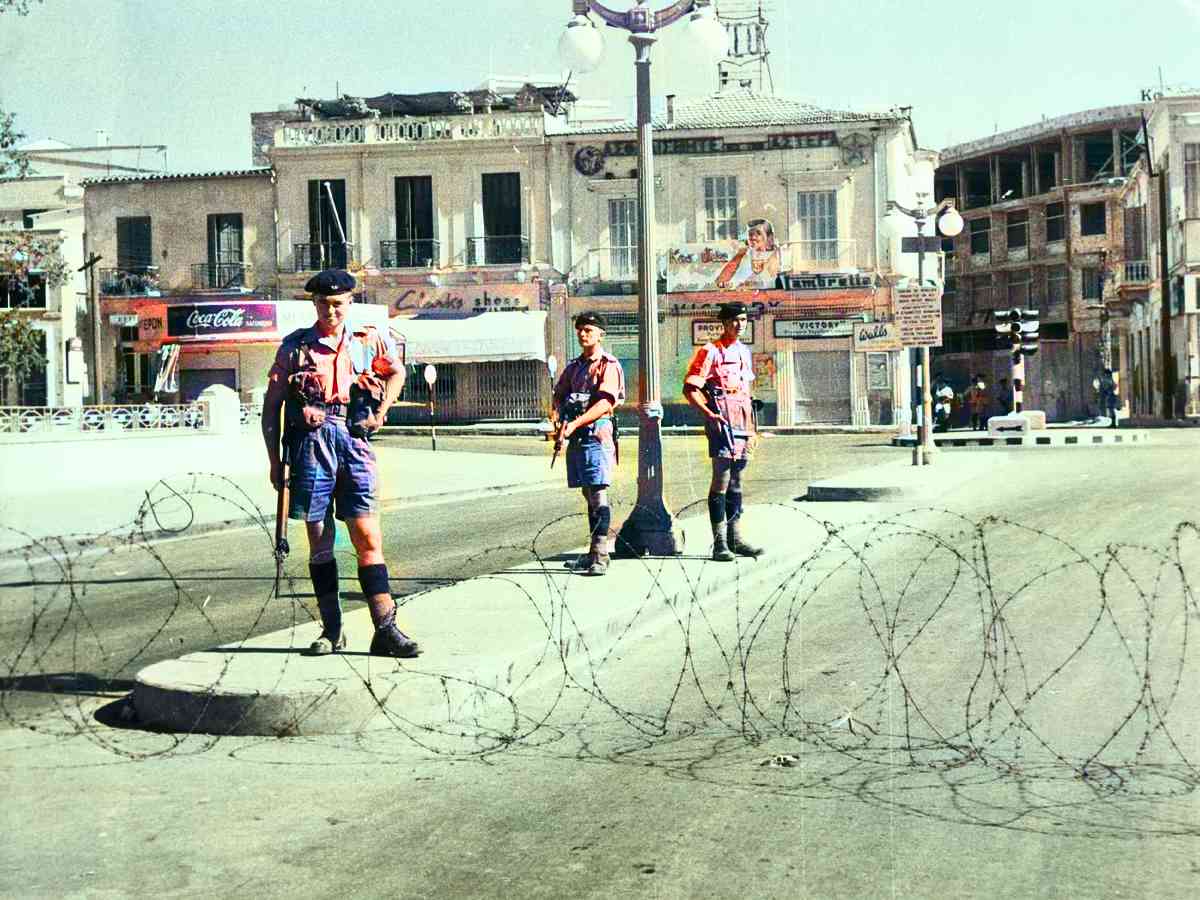We have just passed the 50th anniversary of the Turkish invasion of Cyprus, the third largest island in the Mediterranean. Its history as a colonial enterprise for the Ottomans, the British, and the waring factions of Greece’s and Turkey’s imperialists, has however tragically been abandoned on the highway to more acknowledged struggles and movements.
Cyprus: ignored by the Anglosphere left
This complacent issue is seen pertinently in those on the Anglosphere left in particular, as those who attempt to stand for the rights of the oppressed, with an internationalist perspective driving their politics, have failed to shout loudly enough about Cyprus.
This issue must be addressed, as sectarianism severs the island itself, and the discourse surrounding its fate is either hostile or flavored with a languid neglect of its people. This includes the rich diaspora of refugees and emigres whose children and grandchildren live as close to home as the East End of London, and have fallen victim to the various players who seek to carve up their homeland.
The Turkish invasion
The Turkish invasion of Cyprus, between July and August of 1974, was a momentous and harrowing event in the lives of the 650,000 who were domiciled there at the time. These men and women who had built lives, families and businesses in their nation, were subject to displacement and death, with Turkey later being found guilty of ethnically cleansing these people from the island by the ECHR.
They were subjected to this because of the exchanges of the Greek Ultra-Nationalist Junta, the National Organisation of Cypriot Fighters – who had organised and led a coup of the state soon before the invasion – and the rampaging Turkish military.
Turkish soldiers attacked the island from the north, and occupy it until this day, leaving it to become an empty shell for many years, yet now holding it as a vassal territory, which is heavily reliant on the Turkish mainland for its stability.
The north, as it is, is recognised only by the Turkish government, who contest with the global community its separateness – as global institutions such as the United Nations recognise its wholeness with the rest of the Republic.
Sectarian divides still exist
Since this moment, the island’s peoples have attempted to march on with their existence. Thousands of displaced Greek Cypriots fled; those that remained looked for the missing, and mourned the casualties of 1974. Many, though not all, northern Turkish Cypriots favour some kind of two-state deal on the issue, which is, more often than not, unappealing to southern Greek Cypriots, many of whom would prefer to see the island reunited as a legitimate republic.
This divide of opinion allows for a glimpse into the sectarian split within the nation, and the sentiment of the geopolitical disagreements between Greece and Turkey.
It can similarly be seen in the sometimes parodic discussions on the topic in spaces online and in person, which have led to caricaturing of the two sides and how their discourse on the topic is often tainted with ethno-nationalist animus. This is despite the often warm feeling between Turkish and Greek Cypriots before the invasion; it is at its best unhelpful and at its worst disastrous for the sake of Cyprus and for the sake of Cypriots.
In 2017, UN-brokered talks between the two governments crumbled, the reasons for that being chalked up to a complacency of the southern government of the Republic of Cyprus, and a ridgity of the northern government, who remain cuffed to Ankara diplomatically and socio-politically.
These talks were essential if a reunification deal is ever to be sought, and perhaps also if closure is ever to be garnered by and for the victims of the catastrophe of the 1974 coup and invasion.
A very British problem
Considering the Cyprus problem from the British perspective is also vital.
As a former colony of the British empire, the nation is littered with bases of the British military – 17 to this day. It was an unhappy island under British control, who commandeered it from the Ottomans in November of 1914, as the two empires sought strategic hegemony in the Mediterranean at the start of the First World War.
It would remain under the heel of the British empire until its formal declaration of independence in 1960. Yet what is most important still in the Anglo-Cypriot relationship, is Britain’s aforementioned continuity in holding bases there. These bases it used and uses still for its neo-colonial exploits in areas like Palestine, Iraq, and Egypt, the condemnation of which should not be understated.
This exploitative relationship does not extend to merely the point of military encroachment, however, and spreads itself also to the sociopolitical relationship between British tourism and the South’s teetering seasonal economy.
As the British middle-classes vacation to the island on relatively cheap flights, they pump money into the raucous bars and pubs and clubs of places like Larnaca and Limassol and Ayia Napa, and then fly back to the suburbs of the once colonial metropole, as those same towns and cities empty out in the winter.
Whilst there is nothing inherently dubious about vacationing to sunny locales in itself, a critique must be levied at the British tourism industry, which sets itself up as an exporter of hundreds of thousands every year to a former colony, whose inhabitants are then forced to labour for hours in the summer, and then scrape by in the colder months.
The problem is so in-built that typing in the name “Cyprus” or indeed any of the aforementioned destinations into Google replies first with opportunities for affordable flights and hospitality on the island, and only then the pages dedicated to its history, geography, and politics.
Cyprus must move up the left’s agenda
This persistent neglect of Cyprus and its history can be seen on the Western left also, who say nothing about what the people have been through, and how it is squeezed by the modern scourges of Global South economies – the EU, the IMF, and the World Bank.
We must demand more discourse about Cyprus and the Cypriot diaspora, who have a healthy left of their own, and therefore must be prominent in any discussions about reunification and other political issues the island faces, such as the refugee crisis in Southern Europe.
Indeed, antifascist circles were active on the island as recently as last year, as they vehemently protested the pogrom of refugees in the camps where they have been forced to stay due to Europe’s disgraceful border policy and aggressive international dealings.
Cyprus must be remembered, as for discussions on the topic should not be reserved for moments of heightened tensions between the various states that either exist within or around it. We must uplift Cypriot voices, especially those leftists working for a better future for Cyprus’s peoples, without even a hint of sectarian division or ill-feeling.
Featured image via the Canary




